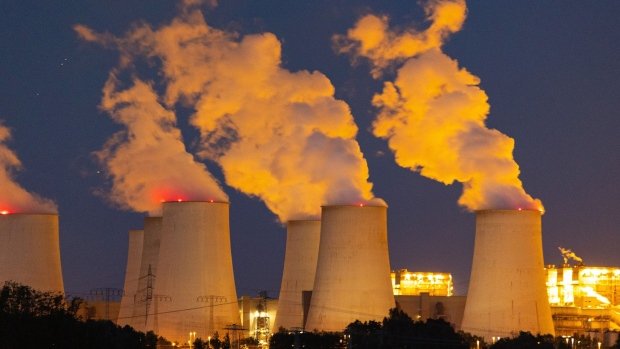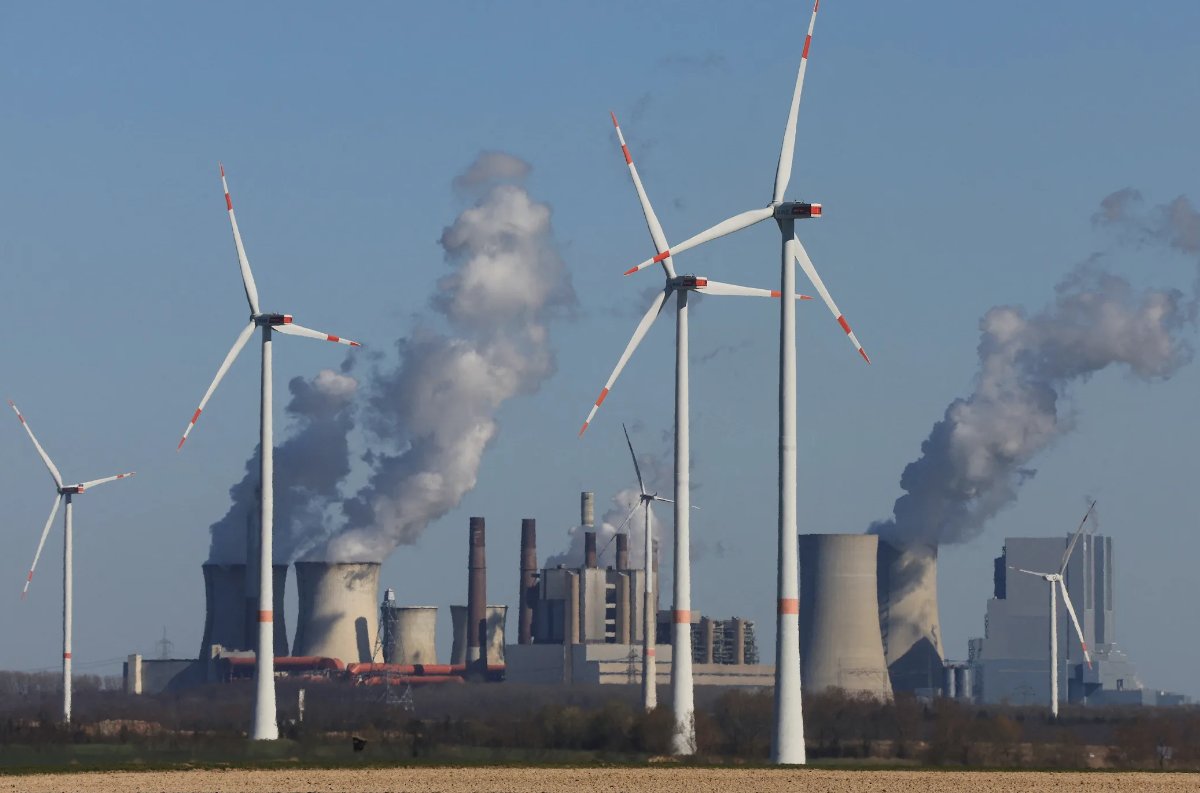
Coal-fired power plant in Petz, Germany on June 21, 2022/Bloomberg
In a recent report released on July 19, the International Energy Agency (IEA) highlighted an ongoing and unprecedented decline in power demand across Europe, indicating a trend that seems to have no end in sight. The report underscores the impact of energy price shocks and economic growth deceleration, projecting a potential 3% drop in European power demand this year, reaching levels last seen in 2002. A similar trend is expected in power demand for the United States and Japan, albeit to varying degrees.
Interestingly, the report foresees China and India maintaining their upward trajectory in power demand, thereby propelling global power consumption to increase by nearly 2% this year. Particularly notable is the forecasted annual growth rate of 5.2% in China's power demand over the next couple of years.
According to the IEA report, the energy price shocks have led to widespread halts in heavy industries throughout Europe, resulting in record bankruptcy rates among European Union countries' enterprises, marking the highest level since 2015. The first half of 2023 witnessed a remarkable 6% reduction in European electricity demand compared to two years prior, with two-thirds of the decrease attributed to industrial weakness.
The competitiveness of Europe's energy-intensive industries is under threat due to soaring energy costs, warned the IEA. Despite global energy prices retracting from last year's historic peak, European industrial output continues to lag, significantly hampering Europe's industrial competitiveness. The report also notes that policies such as the United States' "Inflation Reduction Act" (IRA) and Japan's "Green Transition Advancement Act" have placed European factories in a predicament of production reduction or closure, leading to stagnant or diverted industrial investments.
Euronews, the European news television network, reported that the entire EU industrial output dropped by 1.3% between February 2022 and March 2023. Germany has particularly felt the impact, as its industrial output fell by 0.2% in May this year, below market expectations, raising concerns about a potential prolonged recession. Major German industrial giants like BASF and Volkswagen have already scaled down domestic production and shifted their focus overseas.

A wind farm and coal-fired power plant near Cologne, Germany/Reuters
For instance, BASF has officially launched its integrated base project in Zhanjiang, Guangdong Province, China, while also announcing plans to collaborate with Chinese partners on establishing an offshore wind farm. On May 30, the Volkswagen Group and the Hefei Economic Development Zone signed an agreement to invest €1 billion in establishing an electric vehicle development, innovation, and procurement center in Hefei.
The IEA report also predicts a decline in electricity consumption for the United States and Japan, with the U.S. expected to see a nearly 2% drop and Japan a 3% decrease in power demand this year.
Addressing the current challenges faced by European industries, the IEA suggests that the European Union could increase national aid or enhance energy price subsidies, but this might burden consumers and taxpayers. Another alternative is to bolster support for renewable energy, thereby driving the green heavy industries, though this might entail substantial upfront costs. The agency forecasts that renewable energy's share in global electricity generation will exceed one-third by 2024.
The report highlights that while Western developed economies grapple with growth challenges, China and India are poised to experience an increase in power demand, contributing to a nearly 2% global power demand growth this year. The report further anticipates China's power demand to sustain an annual growth rate of 5.2% in the coming two years.
The "China Power Industry Annual Development Report 2023," published by the China Electricity Council on July 7, revealed that in 2022, China's total societal electricity consumption reached 86,369 billion kilowatt-hours, representing a 3.6% growth compared to the previous year but a decline of 6.7 percentage points in growth rate. Moreover, the report forecasts a tight balance between supply and demand in the national electricity sector for 2023, with an estimated overall electricity consumption growth rate of around 6%. As renewable energy's share increases and coal transitions to fundamental backup and system-regulating sources, diversifying power sources remains pivotal for the reliable operation of the power system.

About OWELL Industries:**
OWELL Industries is a pioneering force in the field of renewable power generation. With a comprehensive portfolio encompassing wind and solar power systems, OWELL Industries is committed to driving the energy transition and creating a sustainable world for future generations. Through innovation and dedication, OWELL empowers individuals, communities, and industries to embrace clean, renewable energy sources for a brighter future. Learn more at www.owellindustries.com.
Hot Sales
1.
High Efficient Monocrystalline 50-500W Solar Panels
2.
high efficient Polysilicon solar panels 50-500W solar panels
3.
OWELL 10kw renewable energy vertical axis wind power generator turbine
4.
OWELL 5kw vertical axis wind generator turbine